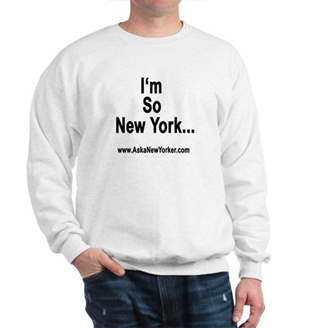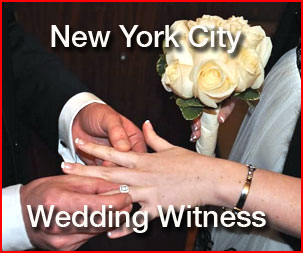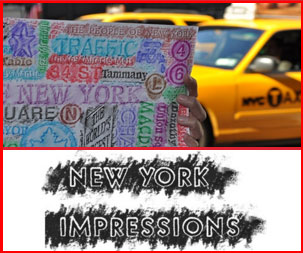Rick Ulfik, Founder and Board Chair of “We, The World”. Founder and a Principal Organizer of the WE Campaign at WE.net. UN Representative of Communications Coordination Committee for the UN, and Co-producer of Visual Voices TV Series, which was featured on the Dish Network and available in 15 million homes.
Rick organizes and promotes scores of events and other activities to create a better world every year.
AANY: But who are you?
Rick: It’s good to be a New Yorker and New Yorker of the Month. I’m actually a native – something I’m very proud of. In fact, I usually say to people I’m not just a native New Yorker , but I’m indigenous to the region, because I was born in Manhattan, Inwood, and I just love the city. Now having started “We, The World” doing our We Campaign New York embodies the whole idea of We. We have the most diverse population in a small region I believe in the world, if I’m not mistaken, at least one of the most diverse areas. Of course with We consciousness it goes beyond people. It’s also animals and plants and rivers and oceans, mountains, valleys and everything that supports the whole web of life on the planet. That’s how we see We, at least in the We Campaign. That’s why when people say, “Oh, I like your organization We, The People, I say, Oh no, no it’s not We The People, it’s We, The World” http://www.WE.net
AANYer: How did the idea come about?
Rick: Well I founded it in 1998. It’s well over 10 years old. Mission statement of “We, The World” is to maximize social change globally until we have world that works for all.
AANY: Getting people involved.
Rick: I’ll get animals involved if they want to volunteer. I think we are at a point in our history where we need as much help and as many people involved as possible. We are at a cross roads environmentally, socially, politically, economically, culturally, spiritually. We have a choice collectively whether to go as one of our advisory board members, Paul Ray, says,”We can either go up to wisdom culture or down to eco-collapse”. That’s the choice we are at right now. I hope we choose the former rather than the latter.
AANY: Beware of domination culture?
Rick: Funny you should mention that.
Ask a New Yorker: I read that in one of your interviews.
Rick: Let me preface that, you know a lot of people are interested in getting enough money now to accomplish the United Nations Eight Millennium Development Goals. Most of them center on ending poverty or at least cutting poverty in half by 2015. And we are nowhere near being on track. That was a 15 year project from 2000 to 2015 and most of the richest countries in the world have reneged on their promises of finances, like the U.S and China. It’s not even looking promising. All these countries they can’t even come up with 1% of their GDP. So even if we were to somehow overcome those obstacles and get the trillions of dollars used to end poverty as we know it, then we still have a problem because the reasons why we have come to this point would still be there. The kind of culture and the systems that we have in place would still bring us to this problem even if we magically got the money to accomplish these goals to ending poverty. We would still have the problems.
So we still have that. We would still have that even if we had that influx of funds. So Domination Culture is characterized by having winners and losers. So in this kind of culture, there’s tremendous social and economic inequality, there’s corporate globalization and competition. Very often it’s cut-throat competition that seeks to expand and dominate markets everywhere on earth. There’s massive damage to our eco systems. There’s exploitation and commodification of all forms of life and environment and almost all aspects of our society. There’s patriarchy, extremism.
AANY: That sounds dire. How do we make progress in the right direction?
Rick: Interestingly, one of our advisory board members is Riane Eisler. Her model of the two different paradigms are the systems of domination, which were talking about, and the other is partnership culture, which is sort of what Paul Ray was talking about, is going to wisdom cultures. It’s kind of like we see each other as all part of the whole, which is like the We consciousness. So that’s characterized by a core of concern for the common good, mutually beneficial social economic and environmental practices, the public sphere and private sphere, localization first, emphasizing regional self-sufficiency and sustainability, women fully represented in all aspects of society, inter-faith movements creating bridges of understanding, norms in the media and culture and communication that emphasis power-with rather than power-over…
AANY: I’m following you. I’ve read in previous interviews you discuss the ‘meta approach’ or’ meta level’. What does this mean?
Rick: Meta level for me, first you have individuals, then you have organizations and then you have groups of the organizations like coalitions and networks. Then you have groups that put those together like Meta networks. So they are like networks of networks. And there are a few of those. There are idealists, wiser earth. And then there’s the mega network which is what we’re talking about here, which is like networks of networks of networks. So that’s kind of like the concept of Meta level. But the real question is why do we need to even really need to think about this? This leads me to why I started “We, The World” to begin with. In the 90’s or back tracking to the 1980’s, I used to give money to all these different organizations, like Amnesty and Greenpeace, all the groups that were doing work to create a better world. I wanted to support them. My life as a musician at that point allowed me to be kind of generous. I would donate to about 30 organizations a year. They are doing that work to create that kind of world that would be best for everyone. In the 90’s I looked around at the politics and what was going on and it occurred to me that the world is not getting to be a better place. I thought maybe I could do something. So I started volunteering with nonprofits and social change organizations. I would go to their meetings and one of the running themes that I heard was, “We’re doing good with this organization but why are we so disconnected from the other organizations that are doing good work? Why is this movement for peace and sustainability, why is it so fragmented? Why are we not all coming together?” That led me to the idea of creating “We, The World”, which has collaboration as a key piece of our mission and our strategy.
AANY: Thank you for such a detailed explanation. Do people ever say that you look like someone else?
Rick: Yes, Trotsky or sometimes Rasputin, especially when I’m wearing this Greek sailor cap.
AANY: Let’s talk about your other passion, music.
Rick: So I have had a thirty-plus year career in music. That started off with me playing in bands when I was in high school. Actually, my mother taught me piano when I was four and my father was a violin teacher, and so the problem with my musical upbringing was that my father especially used to force me to practice, which I didn’t want to do. So I kind of rebelled against that in my early years. My father died unfortunately when I was in 6th grade. From that point on I kind of backed away from music. But to please my mother I still took piano lessons. Instead of going to a special music high school I went to Stuyvesant – I loved science and math. Let’s fast forward to my music career. What I did is I wrote for The French Open tennis, The Olympics, for sports shows on TV, but also soap operas. I wrote about literally half the music for All My Children for about 3-4 years. We called it music by the pound.
AANY: How can we solve the problems facing our educational system?
Rick: Here it is, if we were to redirect or reprioritize our goals in elementary education, K through 9, I think the primary goal of our elementary school education system should be to create students who are self-motivated. I would put that goal higher then achieving any specific levels in math or reading skills or science or history. When you have students that are self-motivated to learn, then the Regents or any of these test that we have, that’s like basic and then you are way beyond that. It’s been shown the people who are excited to learn and are given that opportunity and for that excitement to be fostered then they do very well. I wrote an article about this where I go into the ways you can foster that kind of self-motivation to learn. I was doing that when I was teaching math and I had great results. So one thing I would do is I would interview the kids in my class. Even though I had thirty kids, which is a big class, I would interview all of them about what they’re doing and what interests them. And whatever the math curriculum was, I could use examples from what the students were interested in to connect to what we were learning in math. Of course there are many other ways you could do it too. So if that were the goal, to get kids so that they’re super excited about going to school, think of all the problems that would be solved, bullying, dropout rate, poor achievement, if you have people who can’t wait to come into the class room because it’s being adapted to what their excited about. If I can do it with math you can do that with every subject.
AANY: Well it sounds like it all starts with the teacher in order to improve NYC’s schools. When teachers are motivated the kids feel it and it rubs off on them. Simple question: How do I raise my own levels of acute awareness to improve my own life?
Rick: It’s interesting, in order to do that I become aware of the four different modalities of our existence, which are mind, body, emotions and spirit, which I strive for.
AANY: Thank you Rick. It was a pleasure to meet you. “We, The World” and Ask a New Yorker. It sounds so right!



















